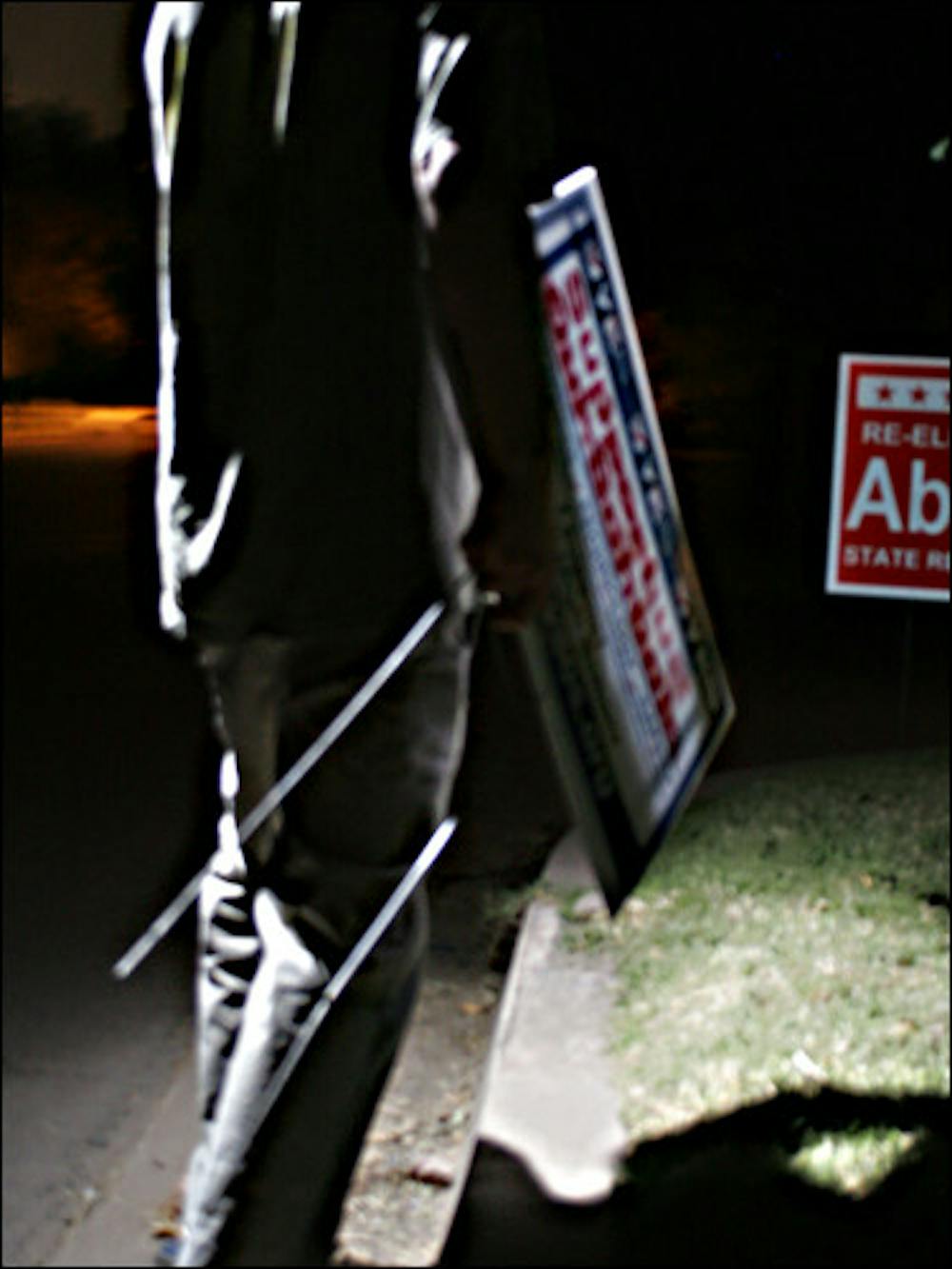The use of political signs as warfare in the upcoming election is becoming more prevalent, say candidates and candidate supporters.
This includes the removal of political signs, which is a crime, and the placement of negative signs, which is protected under the First Amendment.
The removal of signs from property is not tracked by local law enforcement agencies. Also, the use of negative political signs is not tracked. However, many are saying these are problems.
“In the last few years I’ve seen a lot more negative signs,” said Meg Burton-Cahill, D-Tempe. “I’d say that it’s getting more frequent that people are putting out negative signs.”
Burton-Cahill said she has lost signs in this race and every other race she has run in. There have been times she has put up campaign signs, she said, and then the next day they were gone.
It is a class 2 misdemeanor for any person to knowingly remove, alter, deface or cover any political sign of any candidate for public office for the period commencing 45 days prior to a primary election and ending seven days after the general election, according to the Arizona Revised Statutes.
Burton-Cahill and Ed Ableser, D-Tempe, said there were signs placed in Tempe that misrepresented their stances on the immigration issue. The signs read “Open our borders — re-elect Ableser/Cahill.”
Ableser called the signs are a smear tactic to make voters think he is weak on border control. He said he has supported strong legislation to enforce employer sanctions and is a supporter of the original bill to implement the E-Verify system.
“I’ve advocated for strong, secure borders and want to make sure employees are not hiring people unless they have proper documentation,” Ableser said. “I want to make sure people are not crossing the border illegally.”
A recent incident involving an ASU student sparked controversy over the removal of political signs.
On Oct. 17, education sophomore Lori Lieberman removed the negative signs targeting Ableser and Burton-Cahill from the corner of south Rural and east Guadalupe roads, saying ASU’s Young Democrats had instructed her to remove the signs because they were unauthorized, according to an initial police memo.
In a report released Tuesday, Lieberman said she removed them on her own after she read in a Democratic chat room said they were illegal, because they “had malicious intent to influence voters’ opinions of the campaigns,” according to the police report.
Burton-Cahill said it’s a free speech issue.
Anyone can put up a sign as long as long as it can be traced back to someone, Burton-Cahill said.
In this case, the signs were placed on the street corner in Tempe by Jim Torgeson, who said he has made signs for Ableser’s opponent Mark Thompson, R-Tempe. Torgeson would not comment on his personal stance on immigration but said someone should take responsibility for the removal of the signs.
“What she did is against the law clearly. Her initial statement involved the entire group of the Young Dems,” Torgeson said. “I thought the Young Dems embraced the First Amendment. It’s very disappointing.”
Lisa Fernandez, president of ASU’s Young Democrats said her organization never asked Lieberman to remove the signs and denies any connection to the incident.
“We put up signs supporting Democrats, we don’t touch anybody else’s,” Fernandez said.
Both Ableser and Burton-Cahill said they had no association with Lieberman and that the signs should not have been removed regardless of the intent of the person who placed the sign.
“No one should touch these signs; it’s free speech,” Ableser said. “You still don’t have a right to take them down.”
Reach the reporter at philip.haldiman@asu.edu




